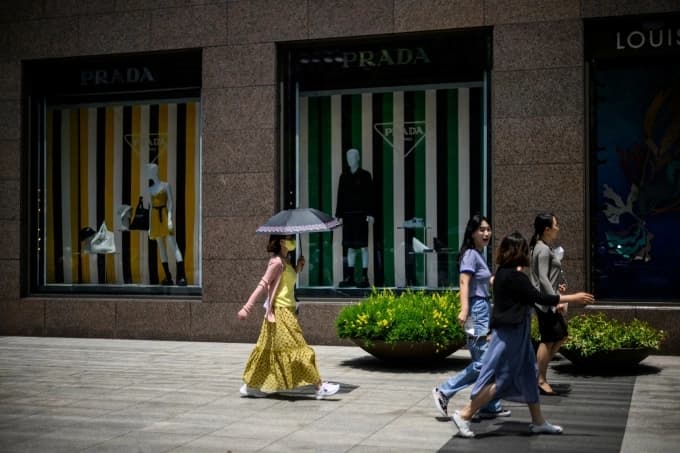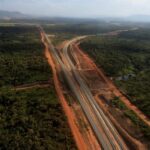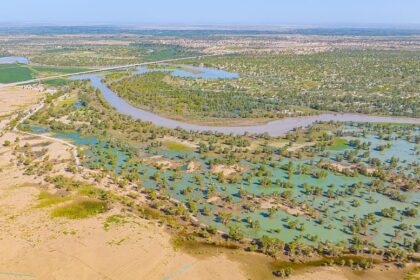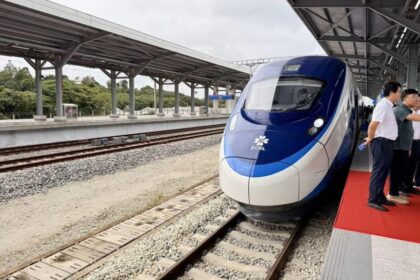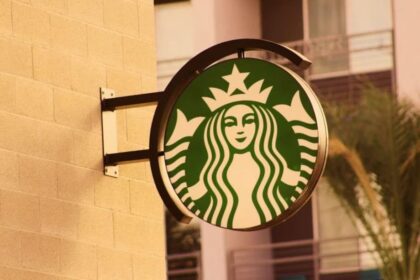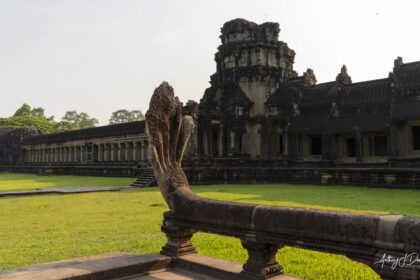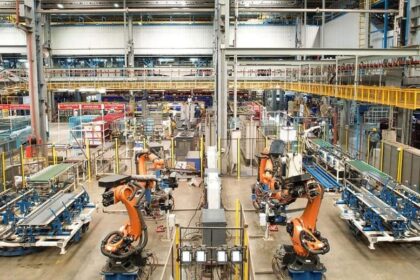Record flight of wealth from South Korea gathers pace
South Korea is experiencing a record acceleration in the movement of private wealth abroad. An estimated 2,400 millionaires are expected to emigrate in 2025, a sixfold increase in three years. In wealth migration research, these individuals are defined as people with more than 1 million dollars in investable assets who relocate and reside in another country for at least six months. Their decisions are already reshaping the country’s standing on global wealth maps and prompting debate over tax policy, business competitiveness, and long term growth.
- Record flight of wealth from South Korea gathers pace
- What is pushing wealthy Koreans to move
- Where are they going and what they are seeking
- Consequences at home for Seoul and the economy
- How the wealthy structure relocation and protect assets
- Can policy shifts slow the exodus
- Beyond the elite, a frugal turn among the young
- Key Points
The immediate effects are visible. Seoul dropped five spots to 24th in the latest ranking of cities with the most millionaires, marking the largest decline among top global hubs. The projected departures equate to about 15.2 billion dollars in assets shifting offshore, a meaningful sum that can reduce domestic investment, philanthropic giving, and risk capital for new ventures. The scale of the trend stands in contrast with South Korea’s overall prosperity. The nation had about 1.3 million millionaires in 2024, ranking 10th globally, while the world counted roughly 60 million millionaires holding an estimated 226.47 trillion dollars in wealth.
South Korea is not alone. Wealth migration is expected to hit an all time high globally in 2025, with projections of 142,000 millionaires moving across borders. The United Arab Emirates is set to lead net inflows, while countries such as the United Kingdom, China, India, and South Korea are among those with the largest net outflows. For South Korea, the drivers are clear: heavy inheritance and gift taxes, anxiety over political and economic direction, and lifestyle preferences that include education options, personal safety, privacy, and lower tax burdens. The movement even has a colloquial name at home, Tal Joseon (fleeing Joseon), a phrase that captures a sense of exit among those with the means to move.
What is pushing wealthy Koreans to move
Taxation sits at the center of most relocation decisions. South Korea’s inheritance tax starts at 10 percent on estates under 100 million won (about 68,000 dollars) and climbs to 50 percent for estates exceeding 3 billion won. When a deceased was a major shareholder of a listed company, the effective rate can reach 60 percent once premiums for control stakes and valuation rules are applied. The top income tax rate is 45 percent, and there are separate taxes on gifts. By contrast, many favored destinations levy no inheritance or gift taxes or provide clear, long term exemptions for new residents. Several members of the OECD do not have inheritance taxes at all, which reinforces the pull of those jurisdictions for families planning intergenerational transfers.
Advisers who work with high net worth clients say that estate planning drives many conversations. Entrepreneurs worry about succession costs when passing family businesses to the next generation. Public market founders face valuation methods that can set a high tax base at the time of transfer, while private company owners are often uncertain about future cash flow, making large tax bills difficult to fund without selling assets. In some cases, owners sell to private equity firms, realize cash, and then build family offices in jurisdictions with more favorable rules for wealth preservation.
How inheritance taxes shape family decisions
Recent high profile moves show how taxes influence strategy. Some wealthy Koreans have shifted residency to Singapore, where inheritances and gifts are not taxed, and dividend income is not taxed at the personal level. Reports indicate that the number of wealthy individuals who changed nationality to Singapore nearly doubled in one year. Others have moved to the United Arab Emirates, which offers no inheritance or gift taxes and no personal income tax, alongside investor visa options that support long term residence. Lawyers caution that returning to South Korea too soon can trigger additional assessments if tax avoidance is suspected, so families often remain abroad for five to ten years before relocating back. That timing is a component of a broader plan that includes asset transfers, trust structures, and education choices for children.
There are also non tax motivations. Clients cite political volatility and a perception of business uncertainty. They want geographic diversification to hedge shocks such as policy reversals, regulatory change, or regional security tensions. Lifestyle also matters. Access to international schools, reliable healthcare, and a security focused environment often tips the balance when families consider where to base themselves for the next decade.
Where are they going and what they are seeking
Destination choices reflect a blend of tax, regulation, mobility, and lifestyle. For Koreans on the move, several hubs stand out: the United Arab Emirates, Singapore, Thailand, the United States, and parts of Europe such as Italy and Switzerland. Each offers distinct incentives, from zero income taxes to predictable residence programs and established international communities.
United Arab Emirates and Dubai
The UAE is the world’s top magnet for incoming millionaires. Forecasts indicate a record net inflow of 6,700 in 2024 rising to about 9,800 in 2025. Dubai’s appeal is straightforward. It offers zero personal income tax, no inheritance or gift taxes, investor friendly residence options, and a deep banking and financial services ecosystem. The city has become a central node for family offices managing global portfolios, with strong connectivity to Europe, Africa, and Asia. For affluent Koreans who want asset protection, clear rules, and portable residence rights, Dubai provides a fast, well serviced platform. Saudi Arabia is also rising as a destination in the Gulf, with projections of about 2,400 millionaire inflows in 2025 driven by large scale investment programs and new financial districts.
Singapore remains a key base
Singapore’s inflow is projected to ease in 2025 compared with recent years, but the city remains among Asia’s most trusted footholds for the wealthy. Forecasts indicate a net gain of around 1,600 millionaires in 2025. Stability, strict rule of law, a broad network of tax treaties, and a sophisticated financial sector make it a favored center for family offices and regional headquarters. It does not impose inheritance or gift taxes, and personal dividend income is not taxed. For many Korean families, the education system, safety, and proximity to home offset higher living costs and real estate taxes that have risen in recent years. Private banks and global wealth managers continue to expand in the city, which keeps the family office ecosystem deep and liquid.
Thailand and Bangkok grow in appeal
Bangkok is emerging as a Southeast Asian safe haven. Analysts expect about 450 millionaire arrivals in 2025. Demand comes from across the region, including affluent families from China, Vietnam, and South Korea. Thailand’s pull factors include international schools, improving financial services, and an active premium property market. While personal taxes exist, cost of living, ease of lifestyle, and regional connectivity, especially to Korea and Japan, make Bangkok a practical base for families who prioritize comfort and convenience alongside investment access.
United States and Europe
The United States remains a major draw. Net inflows were estimated at 3,800 in 2024 and are projected around 7,500 in 2025. For Korean entrepreneurs and investors, the attraction is a deep capital market, a broad economy, and established diaspora communities in cities such as Los Angeles and New York. Europe offers targeted advantages. Italy’s favorable regime for new residents, Switzerland’s long standing lump sum taxation in certain cantons, Portugal and Greece’s residence by investment options, and Malta’s investor programs have drawn families who want both European mobility and tax clarity. Japan and Hong Kong have also regained momentum in Asia, with projections of several hundred net inflows each, supported by stability narratives and renewed confidence among regional investors.
Consequences at home for Seoul and the economy
The immediate headline is Seoul’s drop to 24th in the city ranking by millionaires. Some datasets also show the number of millionaires in the city falling from about 97,000 in 2022 to about 66,000 in 2023. Even if definitions and measurement can vary by source, the direction is consistent with a broad relocation trend and slower wealth creation at home.
What does a net outflow of 2,400 millionaires mean in practice? In absolute terms, it is a small fraction of the country’s 1.3 million millionaire population. Yet the impact can be outsized because these individuals often own and finance growth businesses, anchor philanthropic initiatives, or act as lead investors in early stage startups. Their decisions can shift risk capital offshore or move entire family office teams to competing cities. In property markets, fewer transactions at the upper end can reduce liquidity and lower visibility for new development. In finance, fewer mandates for domestic asset managers or service providers can trim the ecosystem around wealth management.
The broader economy is also facing structural pressures unrelated to migration. Household debt is high, the property market has cooled in some segments, and the economy is grappling with rapid aging. A wave of outbound wealth can amplify those pressures by reducing domestic investment appetite at the margin. Policymakers worry about the signal this sends to entrepreneurs planning to scale or list companies on local exchanges.
How the wealthy structure relocation and protect assets
Relocation is rarely a single move. It is a structured plan that spans residence rights, family governance, business ownership, and portfolio allocation. Most families evaluate a menu of residence options, from investor visas to entrepreneur permits to long term talent schemes. Banking and custody choices follow residence decisions. Families often set up family offices, hire investment professionals, and manage global portfolios from one or two hubs. Education and language support for children, healthcare networks, and local security complete the checklist.
Domicile diversification as a wealth strategy
A growing number of wealthy families treat residence as part of portfolio construction. They diversify domiciles to safeguard assets and preserve mobility during geopolitical shocks. Real estate often anchors this plan. Properties in key cities double as lifestyle bases and legal footholds. Advisers point to three filters that drive these choices: stability, accessibility, and tax efficiency. Stability means strong institutions and predictable rules. Accessibility refers to residence programs and ease of doing business. Tax efficiency covers personal taxes on income, capital gains, inheritances, and gifts, as well as the treatment of foreign sourced income.
Jurisdictions that score well on this matrix, such as Dubai, Singapore, Switzerland, Italy, and parts of the Caribbean, have become strategic nodes in global wealth architecture. Family offices expand where rules are clear and costs match service quality. For Korean families, this often means keeping business operations in Korea while holding part of family wealth and next generation education plans abroad. The approach hedges policy risk without severing ties to home markets.
Can policy shifts slow the exodus
The policy debate is sharpening. Advocates of reform say South Korea’s inheritance and gift tax structure is out of line with competitor economies and discourages business succession. They argue for lower headline rates, more generous exemptions for family business transfers, and simpler valuation rules for large shareholdings. Others caution that rapid cuts could weaken fiscal balance and deepen inequality. They prefer targeted relief for succession while preserving progressive taxation on large estates and gifts.
Recent examples abroad show how quickly wealthy residents can respond to policy change. The United Kingdom ended its non domiciled tax status, a long running feature that allowed foreign residents to shelter overseas income and gains if not remitted. The shift coincided with forecasts of a record net outflow of millionaires from the UK in 2025. Charlie Sosna, a lawyer at Mishcon de Reya who advises wealthy clients on relocation, argued that policy makers in London misread the risk of sudden wealth flight.
“The government was overconfident that the international wealthy loved London so much that they would not go.”
In South Korea, economists warn that without adjustments, outflows could persist as younger wealthy families prove more mobile and more comfortable operating across borders. There are pragmatic steps that could help. Clearer rules for family business succession, time bound incentives to keep family offices onshore, and more predictable personal tax treatment for long term residents can improve confidence. Visa options that attract foreign founders and senior financiers would reinforce Seoul as a regional capital hub, even if some domestic wealth continues to be managed from abroad.
Beyond the elite, a frugal turn among the young
While the wealthy seek global mobility, a different story is playing out among many young Koreans. A culture of frugal living is spreading among people in their twenties and thirties. Surveys indicate a large share report cutting non essential spending in recent months. Students describe saving on meals, commuting by subway, and buying secondhand goods as a norm. The shift reflects pressure from high housing costs, slower wage growth, and a labor market where many new graduates begin with temporary or contract roles.
These parallel narratives, elite exit and lean household budgets, reflect a shared concern: the search for security in an uncertain cycle. For policy makers and business leaders, reversing pessimism and anchoring long term investment will require steps that improve confidence for both ends of the wealth spectrum.
Key Points
- About 2,400 millionaires from South Korea are expected to emigrate in 2025, a sixfold increase in three years.
- The projected outflow corresponds to roughly 15.2 billion dollars in assets moving offshore.
- Seoul fell five places to 24th among global cities by number of millionaires, reflecting the shift in wealth and sentiment.
- Heavy inheritance and gift taxes, political uncertainty, and lifestyle preferences are the main reasons cited by emigrants.
- The United Arab Emirates, Singapore, Thailand, the United States, and parts of Europe are the top destinations for Korean millionaires.
- Global wealth migration is expected to reach a record 142,000 relocating millionaires in 2025.
- Economists warn that without targeted tax and succession reforms, outflows are likely to continue.
- Young Koreans show a growing frugality trend, highlighting broader cost pressures and cautious expectations about the economy.


